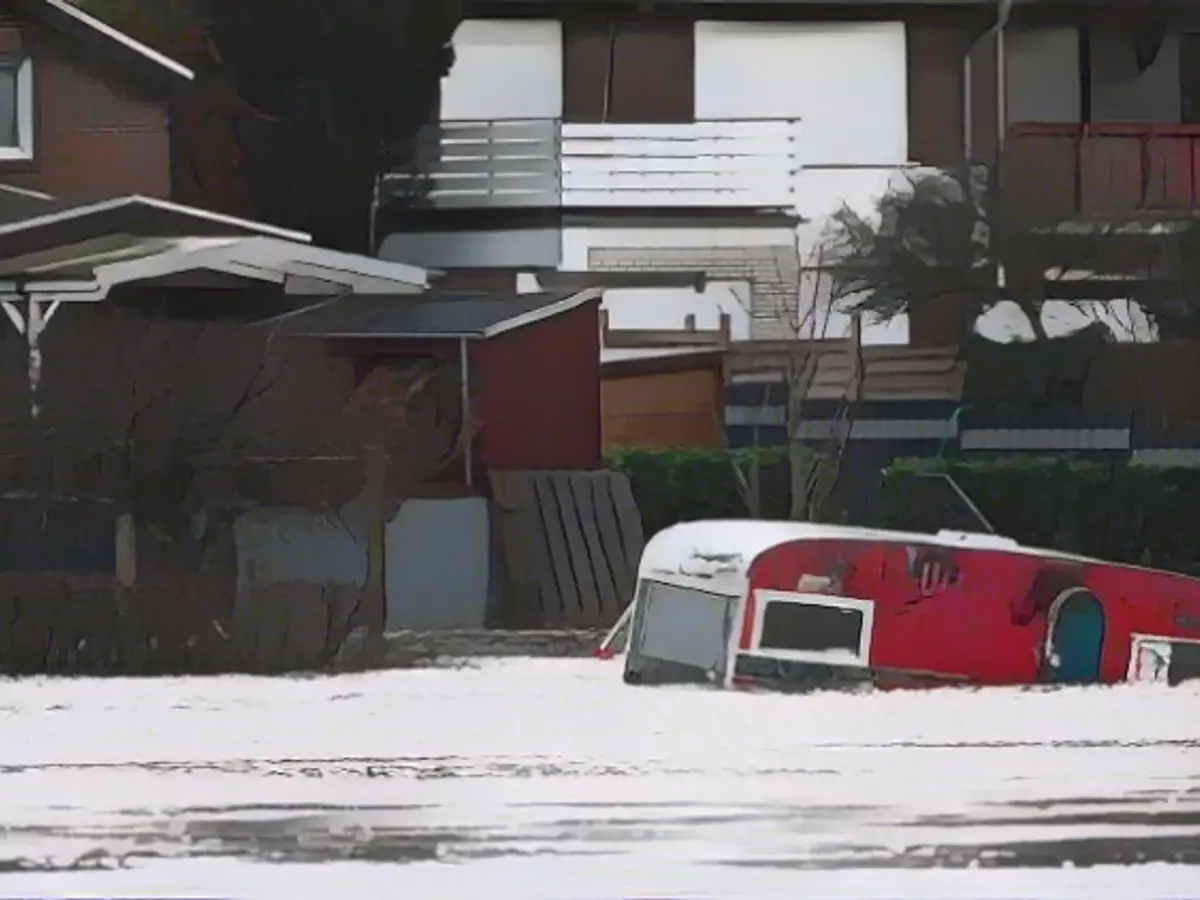Continuous rain poses new danger for flood areas
The situation in the flooded areas has only just calmed down when the next warning arrives: Low pressure system "Dietmar" is bringing warm, humid air from Ireland. The result: more rain in the already flooded regions.
For the time being, there is no peace and quiet in the flood areas in several federal states. According to ntv meteorologist Björn Alexander, several parts of Germany are experiencing more continuous rain. The culprit is low pressure system "Dietmar" centered near Ireland, which is sending very humid and very mild air to Germany. This is exacerbating the flooding situation again, especially in parts of Lower Saxony. The emergency services are particularly concerned about softened dykes. By Thursday morning, 20 to 40 liters of rain will have fallen in the northwest of the country and 60 to 80 liters in the Sauerland and Harz mountains. Depending on the weather model, peaks of over 100 liters per square meter are conceivable by the weekend.
According to meteorologist Björn Alexander, the rest of the week looks like this: Precipitation will spread from the west today, Tuesday, heavy in places, with snow initially falling in the eastern low mountain ranges. Only in Western Pomerania and the Alps will it still be dry in the morning. Short breaks in the rain are possible in the northwest, but there will not be enough sunshine. With strong to gale-force winds (including gale-force gusts in the Black Forest), highs will rise to 7 to 12 degrees, and to 5 to 7 degrees in the north-east and in the mountains.
At night, the continuous rain will ease from the west and change to showers. It will remain cloudy and wet in the north. Lows with strong to stormy winds between 4 degrees on the Baltic Sea and 10 degrees on the Rhine. On Wednesday and Thursday there will be more rain showers, often heavier rain in the north. Only south of the Danube will the showers decrease, with larger gaps in the clouds and sunny spells. Temperatures with strong, gusty winds, 7 to 12 degrees, up to 14 degrees on the Upper Rhine. Thursday will be somewhat cooler at 4 to 11 degrees.
On Friday, sunny spells between isolated showers in the east and southeast, mostly dry and sunny at times in the Alps. In the west and north, there will be more clouds and more rain, with sleet or snow possible at the Baltic Sea. Between 3 degrees at the Baltic Sea and 10 degrees on the Upper Rhine. On Saturday , it will be cloudy and cold and wet in the south, with the snow line gradually dropping to around 500 meters. Otherwise changeable with isolated rain or sleet showers. Highs of 1 to 7 degrees, in the higher mountains around 0 degrees. On Sunday , snow in the south and in the Ore Mountains, otherwise snow or sleet showers at 0 to 4 degrees. Above 600 meters permafrost. Frost and risk of slippery conditions at night, even in the lowlands.
Lasting relief for the flood areas is only in sight from the weekend: on the one hand it will be much colder and snow will fall in the mountains, on the other hand it will be dry for a longer period from Monday. There will still be some snow in the south, then it will stay dry for a few days and it will be sunny at times. Temperatures will be cold with highs of -3 to +3 degrees. At night there will be light to moderate frost everywhere, in some valleys even severe frost below -10 degrees.
Read also:
- Floods: water levels remain critical in many places
- Snow chaos further restricts Bavaria
- Continuous operation in the flood areas
- Flood situation remains tense in many places
- The flood situation in Saxony-Anhalt and North Rhine-Westphalia is also worsened by the extreme weather conditions, with heavy rainfall expected to continue throughout the week.
- Internationally, experts are warning that climate change is increasing the frequency and intensity of such extreme weather events, making flood mitigation efforts even more crucial.
- The German government has requested international aid to help with the flood recovery efforts, recognizing that this is a problem that goes beyond national borders and requires a collective response.
Source: www.ntv.de






